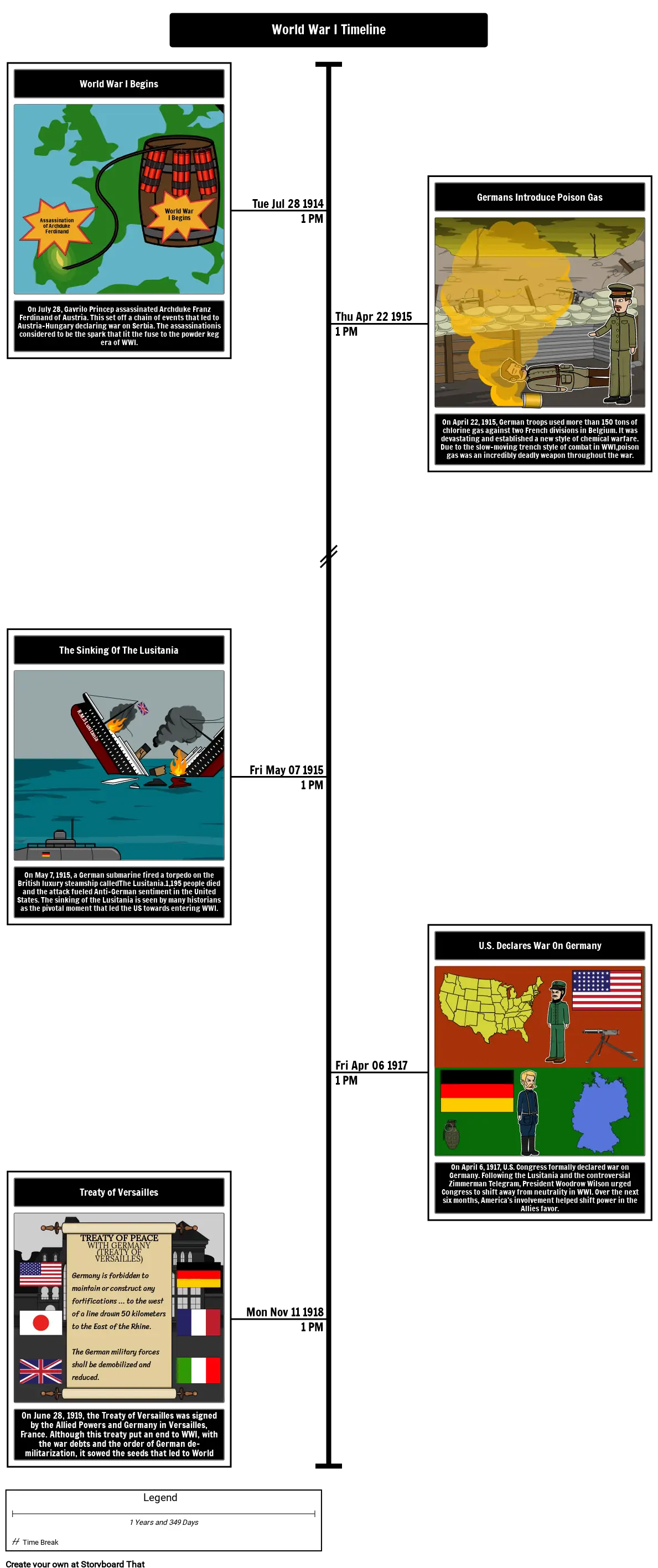Untitled Storyboard

Storyboard Text
- World War I Begins
- World War I Begins
- World War I Timeline
- Germans Introduce Poison Gas
- On July 28, Gavrilo Princep assassinated Archduke Franz Ferdinand of Austria. This set off a chain of events that led to Austria-Hungary declaring war on Serbia. The assassinationis considered to be the spark that lit the fuse to the powder keg era of WWI.
- Assassination of Archduke Ferdinand
- On April 22, 1915, German troops used more than 150 tons of chlorine gas against two French divisions in Belgium. It was devastating and established a new style of chemical warfare. Due to the slow-moving trench style of combat in WWI,poison gas was an incredibly deadly weapon throughout the war.
- The Sinking Of The Lusitania
- R.M.S Lusitania
- On May 7, 1915, a German submarine fired a torpedo on the British luxury steamship calledThe Lusitania.1,195 people died and the attack fueled Anti-German sentiment in the United States. The sinking of the Lusitania is seen by many historians as the pivotal moment that led the US towards entering WWI.
- U.S. Declares War On Germany
- On April 6, 1917, U.S. Congress formally declared war on Germany. Following the Lusitania and the controversial Zimmerman Telegram, President Woodrow Wilson urged Congress to shift away from neutrality in WWI. Over the next six months, America's involvement helped shift power in the Allies favor.
- Treaty of Versailles
- TREATY OF PEACEWITH GERMANY(TREATY OF VERSAILLES)Germany is forbidden to maintain or construct any fortifications ... to the west of a line drawn 50 kilometers to the East of the Rhine.The German military forces shall be demobilized and reduced.
- On June 28, 1919, the Treaty of Versailles was signed by the Allied Powers and Germany in Versailles, France. Although this treaty put an end to WWI, with the war debts and the order of German de-militarization, it sowed the seeds that led to World War II.
Over 30 Million Storyboards Created

